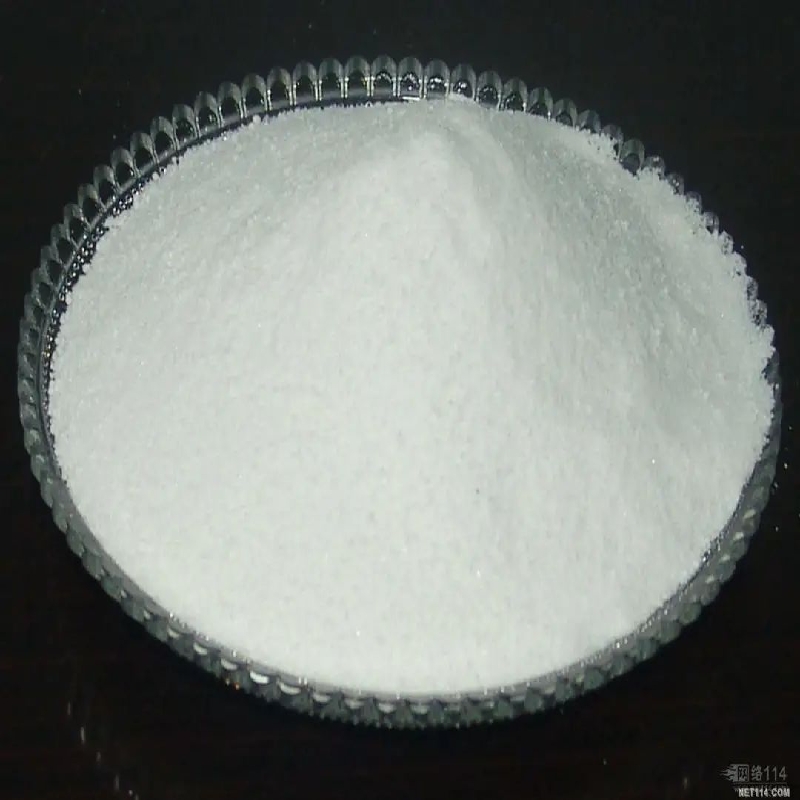-
Categories
-
Pharmaceutical Intermediates
-
Active Pharmaceutical Ingredients
-
Food Additives
- Industrial Coatings
- Agrochemicals
- Dyes and Pigments
- Surfactant
- Flavors and Fragrances
- Chemical Reagents
- Catalyst and Auxiliary
- Natural Products
- Inorganic Chemistry
-
Organic Chemistry
-
Biochemical Engineering
- Analytical Chemistry
-
Cosmetic Ingredient
- Water Treatment Chemical
-
Pharmaceutical Intermediates
Promotion
ECHEMI Mall
Wholesale
Weekly Price
Exhibition
News
-
Trade Service
Introduction:
Lanthanum carbonate hydrate is a compound that is widely used in the chemical industry due to its unique properties.
It is a white or off-white solid that is highly soluble in water and has a high melting point.
This article will explore the various applications of lanthanum carbonate hydrate in the chemical industry.
In the Production of Ceramics:
Lanthanum carbonate hydrate is used in the production of ceramics due to its ability to act as a source of lanthanum oxide.
When the compound is heated to high temperatures, it undergoes a series of reactions that result in the formation of lanthanum oxide, which is an important component of many ceramic materials.
This property makes lanthanum carbonate hydrate a valuable ingredient in the manufacturing of ceramic tiles, porcelain, and other similar products.
As a Catalyst:
Lanthanum carbonate hydrate is also used as a catalyst in various chemical reactions.
It is particularly useful in the production of polyolefins, which are a type of plastic used in a wide range of applications.
The compound works by increasing the activity of the catalyst used in the reaction, which results in higher yields of the desired product.
In the Production of Batteries:
Lanthanum carbonate hydrate is used in the production of lithium-ion batteries, which are widely used in consumer electronics such as smartphones and laptops.
The compound is used in the production of the cathode of the battery, which is responsible for storing and releasing electrons during charging and discharging.
It is also used in the production of capacitors, where it improves the performance of the device by increasing its capacitance.
In the Production of Superconductors:
Lanthanum carbonate hydrate is used in the production of superconductors, which are materials that can conduct electricity with zero resistance.
The compound is used in the preparation of the ceramic precursors that are used to make the superconductors.
It is also used in the doping of the materials, which improves their superconductivity properties.
As a Fuel Additive:
Lanthanum carbonate hydrate is used as a fuel additive in diesel engines.
It is added to the fuel to improve its combustion properties, which results in a reduction in fuel consumption and emissions.
The compound also has the ability to improve the performance of the engine by reducing engine wear and increasing the lifespan of the fuel system.
In the Production of Paint:
Lanthanum carbonate hydrate is used in the production of paint due to its ability to increase the opacity of the paint.
It is used in the formulation of water-based paints, where it improves the stability of the paint and reduces the settling of the pigments.
In the Production of Glass:
Lanthanum carbonate hydrate is used in the production of glass due to its ability to adjust the composition of the glass.
It is used to produce specialized glasses for use in the manufacture of optical fibers, which are used in a wide range of applications including telecommunications and medical instruments.
In the Production of Soaps and Detergents:
Lanthanum carbonate hydrate is used in the production of soaps and detergents due to its ability to improve the foaming properties of the products.
It is used in the formulation of laundry detergents, where it helps to produce more suds, resulting in a better cleaning effect.
In the Production of Plastics:
Lanthanum carbonate hydrate is used in the production of plastics due to its ability to improve the flow properties of the materials.
It is used in the formulation of polypropylene, which is a type of plastic used in a wide range of applications such as packaging and textiles.
In the Production of Pharmaceuticals:






